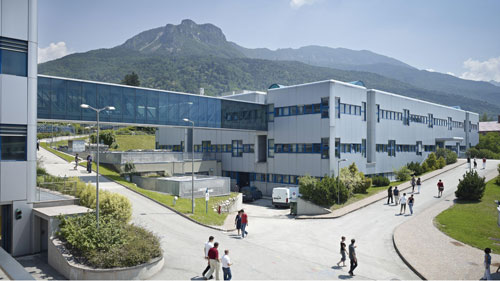Innovation and research in Italian companies of computational linguistics.
At the beginning of the 90s, when the young people of my generation were studying Computational Linguistics (or Natural Language Processing) University, the Center for the Study of Language and Information of the Stanford University was one of the most coveted and dreamed places. Many of us were in love with the Head-Driven Phrase Structure Grammar (HPSG), invented by Carl Pollard and Ivan A. Sag in California. It sounded like HPSG could be the definitive word on formal grammars of natural languages, because they joined some language universal principles (inspired by Noam Chomsky Linguistics) with a powerful computational framework. The approach, however, had two problems: it was difficult to create and manage all the rules quite complex; parsing was not as fast as we would have liked. We devoted ourselves to research but could not make effective commercial services based on this or other computational linguistic framework.
Since then some years have passed. In October 2016 I read an interview with Andrew Ng at the issue by the Chinese company Baidu a chatbot to make medical diagnoses: “As Melody has blackberries conversations, it will Also learn and keep getting better. This is just the start of a much larger, AI-driven transformation of the healthcare industry. “In 1990, Andrew Ng was 14 years old. After a couple of degrees and doctorates, in 2002 he began working at Stanford University. In 2011 he founded the Google Brain project at Google. Also in 2011 he gave a course Machine Learning online to Stanford University, which was followed by about 100,000 students around the world. In 2012 he founded Coursera. In 2014 Ng works in Baidu as chief scientist, and so far has remained to work in that company. This exceptional man is a brilliant example of how the world of research, training and production business will nourish each other with continuous exchanges.
The world of Computational Linguistics and Artificial Intelligence in general are experiencing a period of incredible acceleration
with fast passages between the research and the application of research results into practical services and vice versa, when the issues raised by real cases become a subject of study.
This lively exchange takes place even in Italian companies doing computational linguistics. As well as researchers in this field have always been at the forefront globally, even the Italian companies doing computational linguistics have relied on an international level. For example Expert System, a public limited company based in Modena, Naples, Rovereto, has landed a number of years in the United States and grew up in Europe. CELI as an SME, with offices in Turin, Milan, provides Natural Language Processing technologies and consulting to international companies, from Korea to California. Euregio, based in Bolzano, uses NLP to provide media intelligence services. Interactive Media SpA, with offices in Rome, Trento and in Brazil, specializes in speech solutions. The startup Puglia QuestionCube is focused on the question answering and use the main machine learning tool.
Even Almawave, the Almaviva Group, for some years integrates NLP technologies. Other smaller and larger companies are integrating these technologies to provide their services, using machine learning technologies combined with standard NLP technologies.
What services they offer to customers? The main service is the “Natural Language Understanding”, that is, the automatic analysis and understanding of written texts and speech.
The understanding is obviously partial compared to human understanding, but is much faster, and this allows you to do more things that otherwise would not be feasible, or oversimplify complex activities.
In the next post of this blog we will be described in more detail the issues and the problems of Computational Linguistics addressed in universities and companies.
One of the purposes dell’AILC is to facilitate exchanges between universities, research centers and companies in this sector. In this blog so you can tell some of the findings, the results obtained, the ongoing projects, and problems encountered in the various areas of this discipline.





